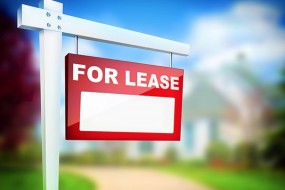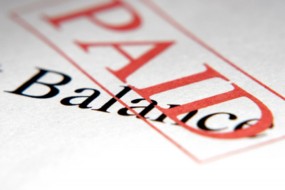![How To Buy A Home When You’re Self-Employed]()
27 Aug 2015 | Home Loans

Self-employed borrowers come up against the challenge of not being able to simply present payslips and tax returns to back up their loan applications. But this need not stop you buying your dream home.
Many lenders offer loans for self-employed borrowers who can’t hand over payslips and employment records. This means that, rather than the usual documentation, you prove your ability to service a loan using bank statements, declarations from your accountant and financial records.
Of course, as with any mortgage application, you must still prove that your income outstrips your spending and you can service the loan. Getting this right is more than presenting a lender with a few quick sums on the back of a napkin; it can take a solid six to 12 months of preparation.
Here are some quick tips:
- reduce debt: pay down credit cards and personal loans, and be sure to lower the credit limits as they are paid down, as lenders assess the total credit available to you as a potential debt level, not just the amount you owe;
- reduce credit card limits or cancel credit cards that you don’t need (this will affect credit scoring);
- talk to us about how the structure of your business and your taxable income will impact your ability to borrow;
- do your taxes when you should, and always pay your tax assessments on time;
- save: saving a deposit is obviously important, and showing your ability to live within your means while saving is too. This is key to serviceability – you want to show at least a six-month history of high income and low expenses; and
- using a finance broker, rather than a bank. We have access to specialist lenders that assess applications on a case-by-case basis and tailor their products to self-employed borrowers and contractors, while bank lenders do not.
Loans to the self-employed do differ from standard loans in a few ways, apart from the application process. Lenders offset the extra risk they are taking when lending to a self-employed borrower or contractor by charging slightly higher interest rates and placing some extra rules on loan-to-value ratios (LVR) and insurance requirements.
Some lenders will also insist on an LVR of no more than 80 per cent – meaning that under no circumstances will they lend more than 80 per cent of the property value, as assessed by the lender.
In cases where the loan amount is for more than 60 per cent of the property’s value, some lenders also require self-employed borrowers to pay for lenders’ mortgage insurance.
If you are self-employed talk give us a call on 07 3911 1190 today, to discuss what your options are.
![How To Buy A Home When You’re Self-Employed]()
24 Aug 2015 | Home Loans, News

Saving for a home? If you haven’t met with a finance broker yet, it may cost you. Here’s why.
When saving a deposit to buy a home, many people have a goal amount in mind that they need to save before they meet with a finance broker who will help them secure the finance.
If this is you, you’re probably doing it wrongly. From day one, when you first think, ‘I could maybe buy a house if I worked hard and saved a lot’, you’re ready to have a finance broker on your side.
Our knowledge of the loan and property market will help you work out how much you will be able to borrow, which determines the size of the deposit you will need to save.
We will also be able to help you develop processes and a realistic timeline to save your deposit faster, and provide creative solutions that will help reach your goals sooner.
You may also be pleasantly surprised to find that you are closer to your goal than you thought. The tools available to us that can help you realise your dreams more quickly and efficiently include lender’s mortgage insurance, specialist lending products, land loans and, for investors predicting significant rises in property prices, interest-only loans.
More importantly than just being allowed to provide these products, we can help you work out whether they suit your situation and goals. For example, while buying land now to build on later lowers the cost of your initial investment and can be an opportunity to take advantage of reduced land prices, there is no point in it if you will not be able to secure construction finance down the track.
Why wait give us a call today on 07 3911 1190 let us help you take the first steps to owning your home.
![How To Buy A Home When You’re Self-Employed]()
20 Aug 2015 | Home Loans

The mortgage industry is a wide, wondrous world with a language all of its own. One of the many acronyms bandied about is ‘LVR’, which stands for ‘loan-to-valuation ratio’. Here’s what it means.
When you are working out what amount you can borrow to purchase a property, the size of deposit you need to save and whether you are eligible for a particular mortgage product, the loan-to-valuation ratio (LVR) is one of the most important considerations.
In the simplest terms, the LVR is the percentage of the property’s value, as assessed by the lender, that your loan equates to. So, if the property you want to purchase is valued at $500,000, and you need to borrow $400,000 to pay for it, the loan is 80 per cent of the property value, making your LVR 80 per cent.
LVR is important because different lenders and loan types have different maximum LVRs, and some lenders will only lend up to a certain LVR for small properties or properties in certain areas.
Most lenders will finance 80 per cent LVR, or higher with lenders’ mortgage insurance (LMI), while alt doc loans may be limited to 60 per cent LVR without LMI.
Still a little confused? Give us a call today on 07 3911 1190 and we can help you understand the language that lenders used.
![How To Buy A Home When You’re Self-Employed]()
17 Aug 2015 | Home Loans, Investor Loans

There are plenty of upsides to buying an investment property that already has a tenant, as well as a raft of risks. Here’s how to minimise them.
- Purchasing an investment property that already has a tenant means you collect rent from day one, with no vacant period and no lease fees to find a new tenant. The lease just carries on as it did before you purchased the property. Sound good? Of course it does. There are some possible problems to be aware of though.
- It’s very important to check whether the lease on your prospective investment is current or the tenants are on an expired lease. If the tenants are off-lease, they can give a short period of notice and vacate the property, so those upsides mentioned above could come to nought.
- A current lease, on the other hand, offers security, it also means that you are stuck with the lease, its conditions (or lack thereof), the current rental return and the tenants.
- There are steps you can take to minimise your risk:
- Make sure the bond has been lodged properly. Your agent will arrange for the bond guarantee to be transferred into your name on settlement.
- Check the property condition report, making sure that it is a complete and accurate record of the property as you inspected it.
- Ensure there are no rental arrears. If there are, or if a landlord has agreed that rental arrears can be taken out of a bond payment, stipulate that this amount is deducted from the purchase settlement amount.
- Ask the leasing agent about the tenants and their payment record. You cannot demand that you meet the tenants, but attending the open house will give you a sense of how they live in the property. If possible, sight the tenants’ original application for the property and rental ledger.
- Look at the yield for rental properties in the area and compare them to yours. You won’t be able to increase the rent until the end of the lease.
- Be aware of any concessions or conditions that are either in the lease or have been agreed with the landlord or property manager, because these will become your responsibility. For example, does rent include electricity or other utilities? Has the landlord agreed to install a new oven or paint a room?
Of course, if you love a property but have doubts about the tenants, the lease or the managing agent, all is not lost. You can easily change the managing agent when you settle. You can also make vacant possession of the property a condition of settlement. You may need to wait until the lease expires to settle, but you aren’t taking on the previous owners’ problems and responsibilities.
If your only problem with a tenanted property is the rental yield, keep in mind that increasing rent on a good, long-term tenant may well drive them away anyway, so do your sums. Work out whether the amount you’d like to increase the rent by equates to more over the year than the lease fee plus any rent lost if your property is vacant for a few weeks.
If you have found the property you love and are happy with the tenants, lease and managing agent, give us a call on 07 3911 1190 or fill in the contact form, and we can have a chat about your options to finance your investment.
![How To Buy A Home When You’re Self-Employed]()
13 Aug 2015 | Home Loans, Personal Finance

Paying off a mortgage can seem relentless – every payment counts of course, but it can seem to be taking forever to make a dent. Here are some simple ways you can increase the amount you pay off and own your home sooner.
Reducing the principle on your mortgage as quickly as you can means paying less interest, so your future payments are going even further towards reducing that principle.
To find the ideal balance between the extra repayments you can afford to make and the time this will shave off your mortgage term, use a mortgage calculator.
For example, on a $350,000 loan at six per cent interest, a monthly repayment of $2100 will see a total term of 30 years and a total cost of just over $750,000, while paying just $500 per month on top of that will bring the loan term down to just under 19 years and the total cost to just over $580,000.
Boosting these monthly payments by a further $400 to $3000 will see the loan paid off in less than 15 years – halving its term.
So, here are five simple ways to increase those mortgage repayments.
Ignore the bank
Well, sort of. Don’t pay any attention to the amount that you are told is the minimum repayment, as long as you pay more. Work out the most you can afford to pay, think of this as your minimum repayment, budget for it and stick to it.
Treat yourself
Think of every step you take towards reaching your goal of owning your property outright as a way of treating yourself. Sure, an expensive bottle of wine is nice, but doesn’t taking a year off your loan taste pretty sweet, too?
Every single increase to your income, no matter how small, should be channelled into the debts that are incurring the highest interest. If this is your mortgage, send it there. Do the same with your tax returns, any bonuses at work and even cash gifts.
Track your spending
Download an app to track what you are spending your money on, and trim where necessary, channelling the savings into your mortgage payments.
Think of all those little things you don’t really notice yourself pulling out your wallet for. In one week, that extra coffee on Monday morning, a sandwich from the cafe instead of one you have made yourself, that round of shots you probably shouldn’t have shouted on Friday night and getting your nails done on Saturday add up to $150. Over a month, that’s $600. Increasing a monthly repayment from $3000 to $3600 could trim more than 10 years off the term of a $500,000 loan. Now how much do you really want that coffee?
Eyes on the prize
Watch the forecast term on your mortgage – seeing it go down will motivate you to work even harder.
Talk to an expert
Talking to your finance broker about refinancing options could reveal a way to pay down your debt sooner even without increasing repayments. We will be able to look into whether you may get a better interest rate or lower fees with another lender, or even with your own, and will be able to help minimise any refinancing costs.
This is especially important each time your goals or your financial circumstances change. If you are earning more than when you took out your loan, you have paid off a personal loan or a credit card since that time, or your property’s value has risen, we may be able to negotiate a far better deal than the one you are on.
For example, if we as your finance broker negotiated a cut in your interest rate of one per cent on a $500,000 loan, on which you are making $3500 monthly repayments, your loan term could drop from just over 25 years to 21 years.
As a MFAA Approved Finance Broker we are with you for life of the loan to make sure you’re always are getting the best deal you can from your mortgage. Call us today on 07 3911 1190 or fill in the contact form and we can discuss how we can help you own your home outright sooner.





